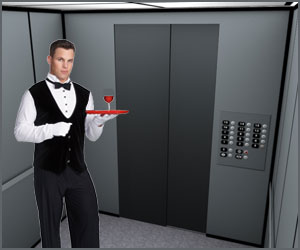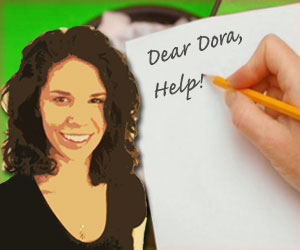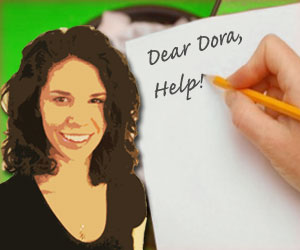 If I were to ask you- yes, all of you out there- what you thought was the cornerstone method for assessing changes in metabolism, and metabolic regulation as a whole, what would your answer be?
If I were to ask you- yes, all of you out there- what you thought was the cornerstone method for assessing changes in metabolism, and metabolic regulation as a whole, what would your answer be?
Sensational Science: Memory Expansion and the Purpose of Happiness
by
 Maybe it’s the summer heat getting to reporters’ heads. Or maybe not. Below I’ve outlined a couple of other recent examples of how the headlines that the popular press shares with the public don’t always match up with what the scientific press actually reports. Or, as in most cases, how the report is twisted in such a way to make for a good “story”.
Maybe it’s the summer heat getting to reporters’ heads. Or maybe not. Below I’ve outlined a couple of other recent examples of how the headlines that the popular press shares with the public don’t always match up with what the scientific press actually reports. Or, as in most cases, how the report is twisted in such a way to make for a good “story”.
Pigeons Know a Crazy Woman When They See One
by
 I have a vivid memory of one of my more humiliating college experiences, and it involved a pigeon. I was walking home past the law library, not really paying attention as my brain had just be fried to a crisp by a six-hour biochem lab, when a dirty great pigeon flew at my face. I shrieked and ducked and generally made quite a scene. After the evil creature had flown away I took stock of my surroundings and realized I had a sizeable audience. These days I probably would’ve taken a bow, but instead I turned the color of a ripe plum, buried my face in my scarf, and fled.
I have a vivid memory of one of my more humiliating college experiences, and it involved a pigeon. I was walking home past the law library, not really paying attention as my brain had just be fried to a crisp by a six-hour biochem lab, when a dirty great pigeon flew at my face. I shrieked and ducked and generally made quite a scene. After the evil creature had flown away I took stock of my surroundings and realized I had a sizeable audience. These days I probably would’ve taken a bow, but instead I turned the color of a ripe plum, buried my face in my scarf, and fled.
Lab Independence Day: What are We Celebrating?
by
 In the spirit of Independence Day, we’d love to fire up the BenchFly grill and cook you up a burger, but alas, we’re foiled by the limitations of Internet technology. Until we figure out a way to eject a perfectly flame-broiled offering out of your disk drive, we’ll have to focus on the other aspect of Independence Day… independence. In the lab, autonomy is highly valued. As we progress through our training as students, scientists and professors, we hope to enjoy increased freedom to pursue our interests and set our own agenda. But like any profession, there are plenty of lines to cut before we are truly liberated.
In the spirit of Independence Day, we’d love to fire up the BenchFly grill and cook you up a burger, but alas, we’re foiled by the limitations of Internet technology. Until we figure out a way to eject a perfectly flame-broiled offering out of your disk drive, we’ll have to focus on the other aspect of Independence Day… independence. In the lab, autonomy is highly valued. As we progress through our training as students, scientists and professors, we hope to enjoy increased freedom to pursue our interests and set our own agenda. But like any profession, there are plenty of lines to cut before we are truly liberated.
Stuck Sharing a Project With a Lazy Labmate?
by
My advisor assigned me and another grad student a big project. It was implied from the start that we would have equal contributions. I do all the literature reading, planning, designing, and problem solving while actually performing a larger portion of experiments. My lab partner did help me with doing experiments but nothing else. She only does what I tell her to, never takes any initiative and relies on me to solve problems. He’s basically just a lazy labmate. But when we present our work at groups meetings, it looks like we have the same contribution while we do not. What should I do?
– Fed up, Grad student
Elevator Etiquette: The Essentials
by
 Had George Washington been born 200 years later, his famous quote on the necessary virtues of a society would no doubt have read “Religion, morality and elevator etiquette are the essential pillars of civil society.” Few situations are as uncomfortable as when someone violates the unwritten social contract we all have with the moving box. However, based on thousands of rides in thousands of elevators, it is clear that elevator etiquette is as dead as General Washington.
Had George Washington been born 200 years later, his famous quote on the necessary virtues of a society would no doubt have read “Religion, morality and elevator etiquette are the essential pillars of civil society.” Few situations are as uncomfortable as when someone violates the unwritten social contract we all have with the moving box. However, based on thousands of rides in thousands of elevators, it is clear that elevator etiquette is as dead as General Washington.
To Boldly Go Where No Worm Has Gone Before
by
Sensational Science: Why It’s a Great Time to be in Science
by
 At a regional Post-Doc Association meeting last week a speaker announced that this is an amazing time to be in science- a terrible time to try to get into academia- but an amazing time for science. So, this month for Sensational Science I’d like to do a little something different. Instead of pointing out the comical headlines (“Super-Small Transistor Created: Artificial Atom Powered by Single Electrons” – what, exactly, is an “artificial atom?”) I wanted to draw your attention to a handful of really interesting – if not sensational – true, accurate, science discoveries.
At a regional Post-Doc Association meeting last week a speaker announced that this is an amazing time to be in science- a terrible time to try to get into academia- but an amazing time for science. So, this month for Sensational Science I’d like to do a little something different. Instead of pointing out the comical headlines (“Super-Small Transistor Created: Artificial Atom Powered by Single Electrons” – what, exactly, is an “artificial atom?”) I wanted to draw your attention to a handful of really interesting – if not sensational – true, accurate, science discoveries.
Grant Writing: Is “Grant Creep” Choking Out PIs?
by
 Regardless of the field, most projects struggle to manage a phenomenon known as “scope creep”, where a defined set of tasks slowly expands – one seemingly-miniscule step at a time – into something much larger than originally planned. It often happens innocently enough as in the case of a home repair, “Since you’re planting that bed of flowers anyway, maybe we could just add a small bush on the side… and another row of flowers in the back… and another small bed on the side of the house… and…” Before you know it a small, self-contained project has tripled in size and cost in the blink of an eye.
Regardless of the field, most projects struggle to manage a phenomenon known as “scope creep”, where a defined set of tasks slowly expands – one seemingly-miniscule step at a time – into something much larger than originally planned. It often happens innocently enough as in the case of a home repair, “Since you’re planting that bed of flowers anyway, maybe we could just add a small bush on the side… and another row of flowers in the back… and another small bed on the side of the house… and…” Before you know it a small, self-contained project has tripled in size and cost in the blink of an eye.
Repetitive Strain Injury: The Hidden Lab Hazard
by
What was the most difficult part of *your* graduate school career and how did you overcome it?
– Sabine, graduate student




